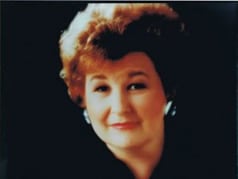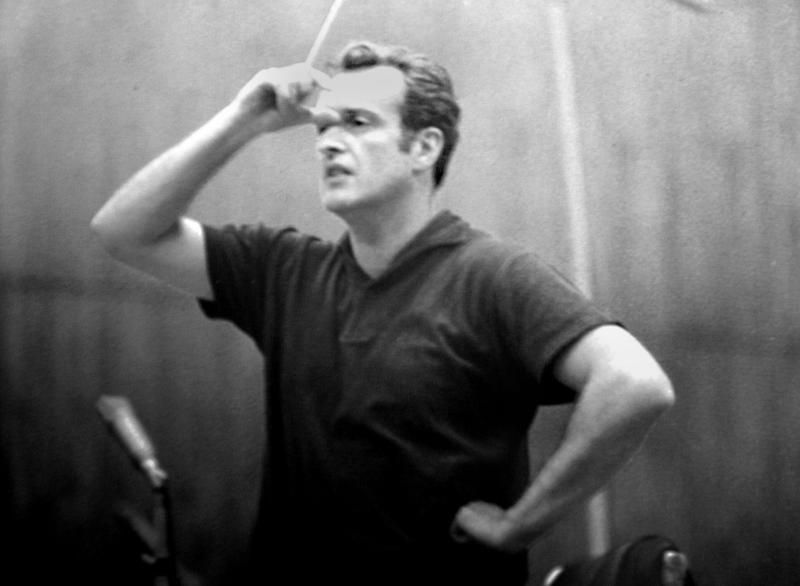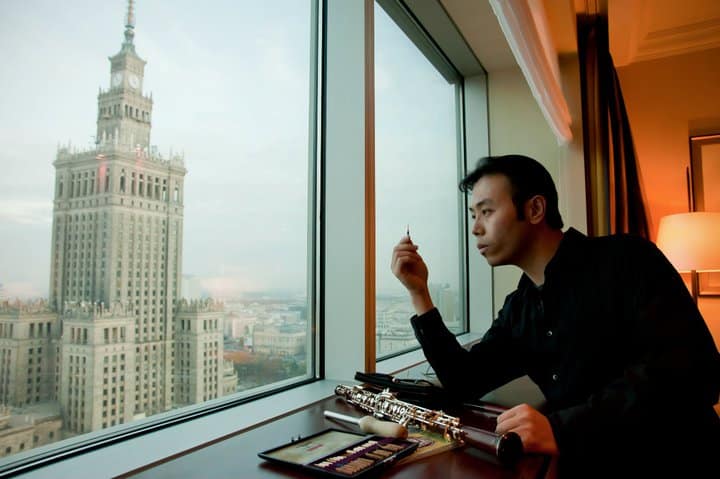Must-read: What every singing student needs to know
mainSusan McCulloch, a Senior Professor of Voice at London’s Guildhall School of Music and a performance consultant for the Royal Opera House’s Young Artists Programme, has shared her introduction to students with friends. We found it so clear-sighted that we obtained her permission to share it.

Dear Students
I am writing to you as a Professor. As someone who has had an international career as a singer. As someone who made a choice to become a teacher, about which I am passionate, because I wanted to help your generation of singers to learn to be great singers, to pass on some of the many things I learned both from other great musicians and also from the stupid mistakes that I made myself. I could have chosen to do many other things…. Become an agent, a director, a coach, changed paths altogether and left the music world behind, but I didn’t. I became a teacher through a powerful set of voluntary choices and am here, very proudly working in the vocal department at the Guildhall.
I believe that we (mostly) select some of the highest talent in each generation to come here. Young singers who audition and show us that they have something really worth investing in, nurturing and developing… And hopefully who will go on to find their niche in the music world of the 21st century. And hundreds (quite literally) of other young singers who are turned down, in some cases almost as good as the ones we accept, and each year, we hope we have made the right choices.
You are those choices. You are the chosen ones. You have a place that tens of other hopeful singers wanted to have, and didn’t get.
Whilst you are here, you will come into contact with many different people, colleagues your own age…. and teachers. Some of whom will make a big impression on you. Others less so.

Speaking for myself, I really want you to learn as much as you can. I really want you to be that little bit better than you think you can be; that little bit better than one of your peers at all the other music colleges and universities. I want you to leave college with a chance of finding your place in this absurdly overcrowded profession. The phone will not ring at the end of your time here, offering you riches, fame, work and a career simply because you have graduated. The profession has hundreds of hopeful wannabes who all want the work that you want. You have to be better than they are to get that work.
So how do you get that work?
Well. Obvious as it sounds, turning up to classes is a start. Punctually. Which means arriving five minutes beforehand so that the class/rehearsal can begin on time. This, by the way, is how the profession is run. You never know when you might suddenly have that lightbulb moment that changes the way you work. I plan my classes to try and enable you to be that little bit better than you believe you can be; to challenge your parameters so that you will sing better than someone who wants the same work as you do….. To try and light a spark that might encourage you to dig deeper and come up with something thrilling/moving/funny…. I want to see you growing and fulfilling that potential that we saw in you when you auditioned here as a raw talent several years ago. I don’t want to see a young singer, jaded, uninterested, bored, playing with a phone, drinking their coffee, studying different music…. Or just not even bothering to show up.
Often, if you are lucky enough to get a job with an opera company or a choral society, a large amount of your time will be spent hanging around waiting. Staying interested, alert and participating.… Even passively……Whilst you are waiting around. And sometimes, everybody in the room will be waiting around whilst you are singing….. Learn the art of being a good colleague here and now. Somebody else who didn’t get the place at GSMD that you now have, would sacrifice a lot to sit and wait around in your place, just to be here and studying singing. Sometimes you may feel that the teacher is not offering anything of particular interest to you….. I can assure you from experience that many directors in professional circumstances are also, often, less than interesting and you still have to be there, alert and interested and ready to work….. Learn that art now! Find something to learn from them.
And, if you make a choice not to turn up to classes, and not to avail yourselves of all that your course has to offer, there will inevitably, be consequences. This is not a tacit threat but a reality. The reality is that you are tearing up and throwing away twenty pound notes by the handful for each hour you choose to absent yourself. You are paying for this course and each class costs you money. The reality is that you can learn something from each moment of every day: if you CHOOSE to….. If you keep an open mind and are present during that class. The reality is that if you don’t learn something, somebody else, somewhere else will be overtaking you and leaving you behind in the race for a place in the profession…. Somebody will have slightly better language skills, or understand the style a bit better or know more about how the voice works than you do. Because they chose to attend. And it was your choice not to attend. The reality is that many members of staff are in the position of influencing your progress as a professional singer, both internally and in the profession…. The reality is that if your head of department is asked to recommend singers to work with guest artists, he may be more likely to suggest someone who is present, who makes the effort to turn up on time, and comes up with a good standard of work. At every turn you are exercising your right to fail by not making the right choices for yourself.
It is not for me to make you come to a class. Hopefully if I make it interesting enough you will want to come, and want to see how your colleagues are able to change their skills by the choices I offer them, or enable you to see how you can change the way you approach something and spark an interest in growing and learning. Hopefully.
And if not, the hardest part of my job is accepting that you have the right to fail if that is what you choose.
And when you do make those wrong choices, I think of all those hundreds of other people at the auditions, who, on a minuscule moment of chance, on the turn of a phrase or the spin of a note, didn’t get the place that was awarded to you, and who might have made a far better job of being a music student than you have done. And that makes me sad for both you and them.
Step up to your own potential greatness, be the best student you can be, and don’t wake up when you are in your midlife years and wish you’d done it better. Be that person now.





This is pretty wonderful. And it applies not just to students, not just to singers, but to all who practice, or want to practice, music as a profession or avocation. Thank you Maestra McCulloch!
Wonderful. And it doesn’t stop when you’ve finished at college: that’s just the preparation. Being a good colleague and supporting your fellow musicians, being superbly prepared but completely flexible… it’s just as much part of the profession as being brilliant at your instrument or voice. And what Susan says is just as valid for orchestral players and chorus singers as it is for solo singers. When I’m deciding which violin to book for that last slot in the tour, or selecting that last voice for the chamber choir, and I’ve got a choice of four equally excellent singers or players, but can only employ only one, as well as weighing all the musical factors, I do tend to remember the person who (for instance) helped out when the whole concert set-up needed moving 2m forwards and there weren’t any technicians around to do it: or the (famous) mezzo who got down, literally, to her knees and rolled up a large carpet in a recording session because it needed to be moved, so she just got on and did the job – they are the ones who get that little bit further (and often they are the ones who anyway show that extra spark in a concert). Being a good musician is more than just being able to sing or play wonderfully: it’s also a profession where collaboration and teamwork both on-stage and off-stage help to create a positive atmosphere, which then urges the finished musical product to be just that little bit better than you ever thought it could be.
Much here about the best musicians enthusiastically marching in step, so to speak. I think the history of classical music was shaped by people who were much more individualistic.
And William famously misses the point, seeming to detect instead a collectivist threat to his individuality.
Indeed, in orchestras I see a collectivist threat to individuality, though the orchestra’s anachronistic hierarchical structure and authoritarianism are even worse problems. The most interesting artists avoid them.
I read Susan McCulloch’s open letter with interest. I recently spent a year studying voice at Guildhall but decided to withdraw from the course. Not because I became disillusioned (or jaded); lost my love for singing, or had any substantial grievances towards that music college. I decided that, on balance, this particular type of competitive professional path was probably not for me in the long-term. Now I sing for pleasure alongside training as a musicologist (while recognising the competitiveness of academia and of virtually every niche of the job ‘market’ today). Having outlined my investment in this topic, I’d like to offer some responses to Professor McCulloch’s letter.
Firstly, I think it could be read in the wider context of debates surrounding higher education. I think a lot of people would agree that the ‘absurdly overcrowded profession’ is more crowded today than ever before, and this goes for many professions. Why is this? Why is it that in spite of the high and constantly rising tuition fees, successions of young people continue to apply to the institutions that might credentialise their career choice? On one hand, it could be celebrated as a sign of a vibrant cultural scene. On the other, you could pose the alternate question to the institutions: why do they take on so many students, in the knowledge that only a fraction of them will sustain themselves in the highly specialised careers for which they’ve trained? The answer is that it’s a business–that’s not an indictment, but a fact. And whether this supply of places encourages the demand for them—or the other way round—would be difficult to determine.
If somebody has made the investment to undertake this training, it’s clearly intuitive that they follow Professor McCulloch’s advice that they should work hard, apply themselves and make the most of it.
At the same time, I think it’s important to recognise that even hard work isn’t in itself a substitute for the chance elements involved in the potentially high-risk / low-return gamble that many students are taking. I see so many blog posts and YouTube videos by singers who use these media to vent—often sarcastically or tragi-comically—their frustration at some of the truly unrewarding aspects (even at the very ‘top’) of this profession. So what I’d like to add to Professor McCulloch’s comments is that disenchantment is probably as likely to be a response to these types of anxieties as anything else. That’s not to say some students aren’t lazy, or over-entitled, because there will always be students like this too.
The other thing I wanted to comment on is Professor McCulloch’s use of the word ‘failure’. With great respect, I don’t think it’s helpful to maintain this success/failure binary – in these terms, one would have to call an awful lot of conservatoire graduates ‘failures’; or perhaps even that conservatoires are ‘failing’ these young people.
Something I always thought was good about Guildhall was the Teaching Skills component for undergraduates; although I never saw it first-hand, since I was a postgraduate. I really hope it instils students with a sense of pride and purpose in teaching; the kind of passion that Susan McCulloch has for it. And in general, I hope that students take pride in their involvement in music in whatever form is right for them.
Jake, your reply is spot on!
I respect the text author’s opinion and while it is valid, it’s a bit simplistic and comes across as “10 steps towards a career”.
It fails to mention that even if you’re the most hardworking person around and are recognised by your peers as a good professional, the odds still aren’t in your favour.
This is a type of awareness that Music Colleges fail to instill in students, especially today in the world of “chewing gum” opera. It’s not necessarily the hardworking and talented ones that get a career. It’s the ones who for some reason, find someone in their paths who like what they do or what they present and that doesn’t necessarily mean they’re the most dedicated ones.
Even a few months ago, ENO soprano Angel Blue publicly admitted on Twitter she only starts preparing for performance a few weeks before and that most people underrate the importance of “vocal rest”. Yet, even though I don’t personally like what she has to offer or think that it is of any artistic relevance to the opera world, she has what many singers who are both better technicians and musicians, would consider a dream career.
I applaud professor McCulloch for underlining the importance of hard work and of knowing your craft inside out. (There were people in my year at music college who didn’t know who Jessye Norman was. And I’ll leave at that.)
What singing students also need to be aware of is that they will have to deal with the frequent frustration of not seeing their hard work and high quality output recognised and, unfortunately, there’s not much that you can do to deal with that. It will suck big time.
It takes courage to change your mind and understand that a particular pathway is not for you – and, as Sue says, it enables somebody, who does feel they can run with the risks, the opportunity.
I arrived at Guildhall in my mid 20s having been a classroom teacher first but wanting to perform. I was saddened by how many people behaved the way Sue has suggested. I was all puppy-dog enthusiasm and grateful for the opportunity to study at one of the world’s top conservatoires, yet I remember in my first French Song class arriving with 10 minutes to spare, ready to absorb the atmosphere and there was an empty room! That continued for the rest of the classes until I realised that nobody showed until the actual moment of the class – in my day, professors included I might add!
I am afraid that there are students who still feel it is uncool to be passionate about what they do and who actually do not have the intuitive leap concerning these matters highlighted here.
I see it in singers who claim they want to sing professionally – yet don’t really understand what that meant. Indeed a while back I wrote a small article about what life at Music College is REALLY like for the uninitiated. Sue has said it much better here!
Yes, colleges take on lots of potential singers and that is the crux. You actually don’t know how somebody’s voice is going to turn out or if they are going to blossom while studying. Everybody has potential at that level, but it is whether they can take that extra step. Singing, as you know, is not prescriptive – it is a journey of discovery and a voice reveals itself over time.
Guildhall and the other conservatoires are the places you go when you have made the choice to be the best singer in the world (however that works out!) so that you can share music and participate and by its very nature, it is highly selective. I think if we all stopped and realised how privileged we have been to have access to this experience, then maybe Sue would not have to write this in the first place!